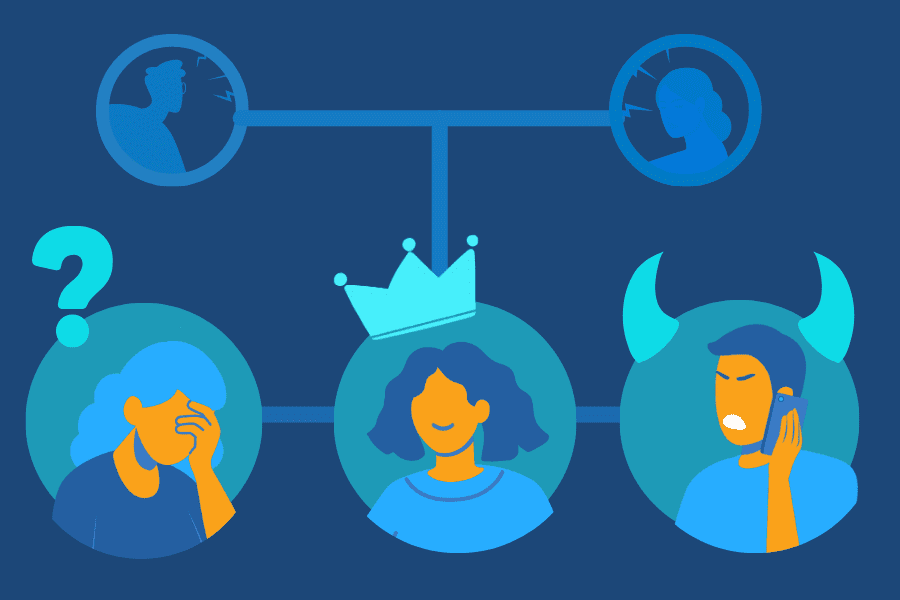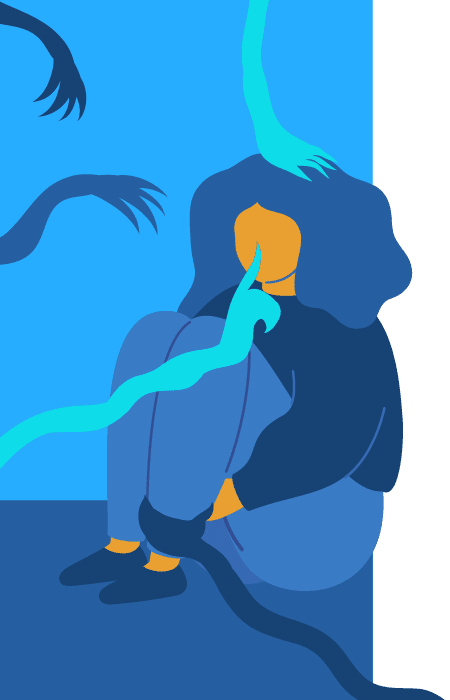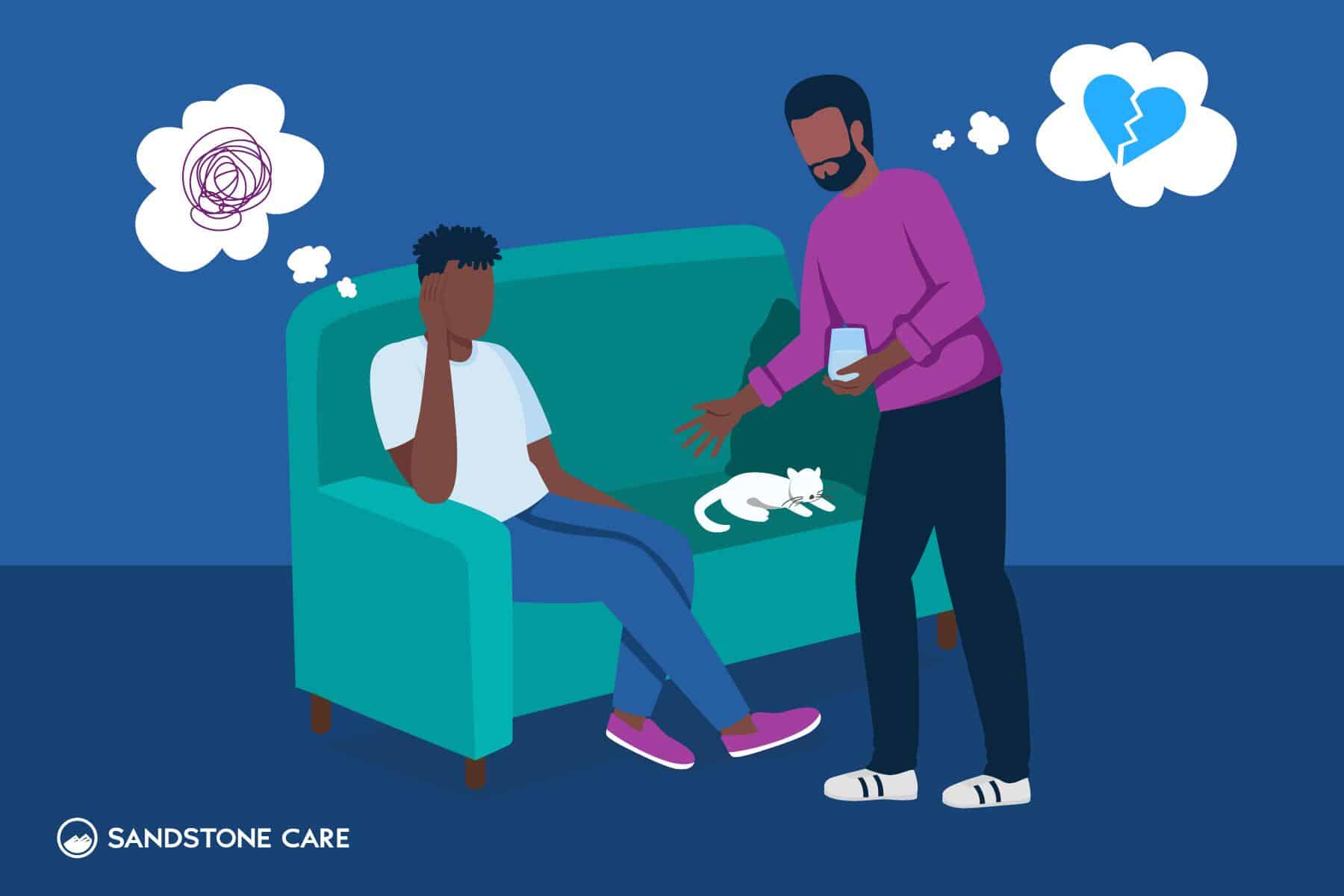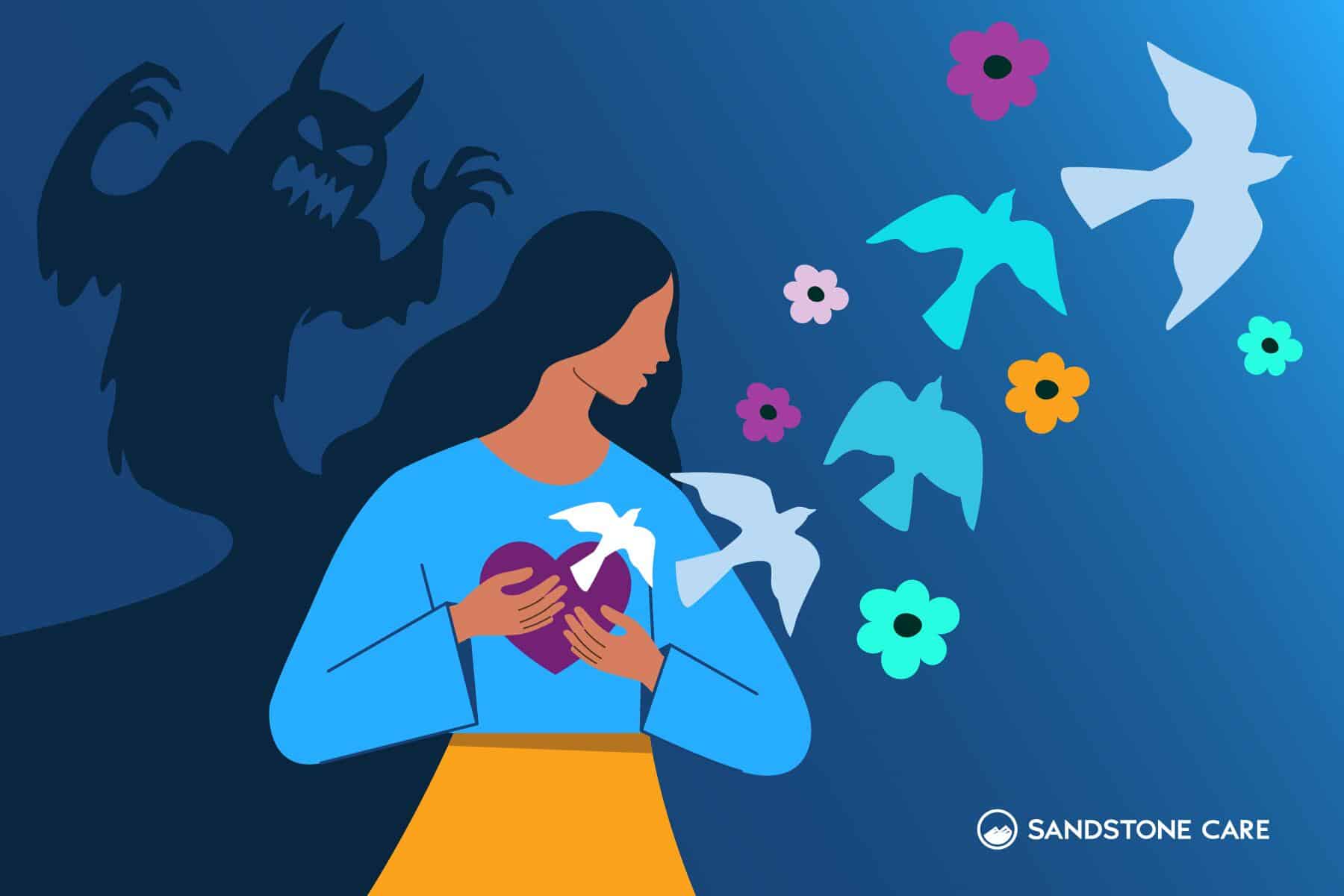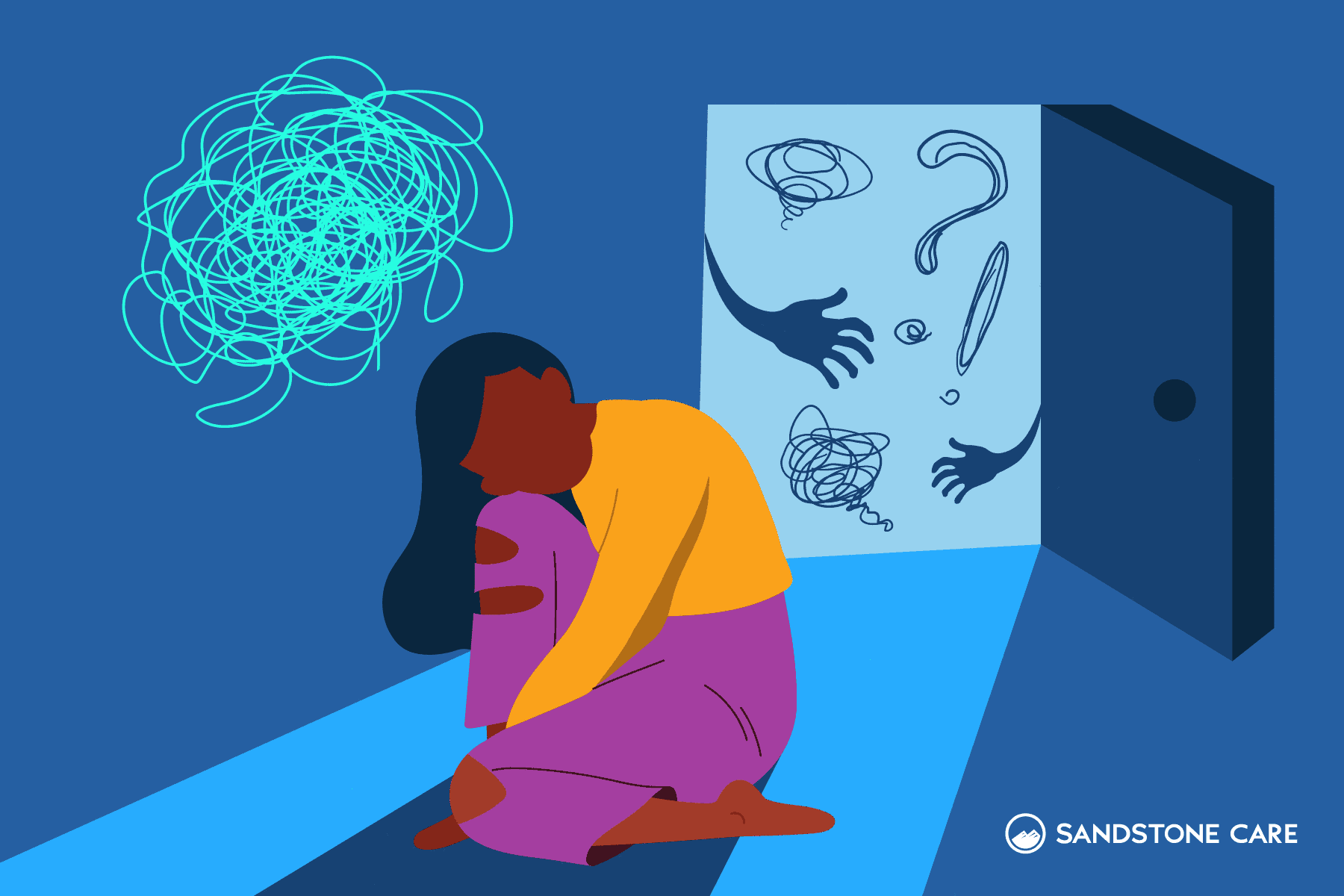Dysfunctional Family Roles
What Is a Dysfunctional Family?
A dysfunctional family is a family system that regularly has conflict, neglect, dysfunctional roles, unhealthy boundaries, or unsolved arguments that often affect the entire family unit.
Did you know that dysfunctional families can come in many different forms? In some cases, parents may provide for their children’s physical needs by providing them with food and shelter. However, they might not provide for their emotional needs by encouraging them or helping to build up their self-worth.
In other cases, a parent may struggle with substance use or mental illness, making it so that they can not properly care for their own needs.
As a result, the roles of parent and child may become reversed. In other words, the child may often be the caregiver for their parent.
The parent can then become codependent on the child, which can make it difficult to keep a healthy family dynamic.
Those who grow up in a dysfunctional family may struggle with their own mental health as they grow older. However, by working with a mental health professional and attending therapy, it is possible to recover from the damage from growing up in an unhealthy family or unstable environment.
If this is something you’re going through, our team at Sandstone Care can help.
Are Dysfunctional Family Roles Common?
Yes, dysfunctional family roles are common within families that frequently have conflict, mental illness, emotional neglect, or other similar issues.
Both parents and children can take on dysfunctional family roles as coping mechanisms or to try to find some sort of balance, even an unhealthy balance, within their family.
What Does It Mean to Have a Dysfunctional Family?
A dysfunctional family can be categorized in many different ways, but it often involves frequent conflict, mental illness, substance abuse, neglect, or unresolved trauma.
It can also be a combination of several of these different things.
No two dysfunctional families look exactly the same. In some cases, the dysfunction may be obvious to others, but in others it may be concealed or covered up.
Having a dysfunctional family doesn’t mean you are a weak or bad person, or even that your family doesn’t love each other.
Experiences like childhood trauma can make it difficult to build relationships that aren’t self-destructive, even if everyone involved is trying their best.
This is why outside treatments like family therapy can help identify problems and find solutions that help the family build new, healthy ways of communicating.
Understanding Family Roles in Dysfunctional Families
What Are the Five Roles of a Dysfunctional Family?
The five roles of a dysfunctional family are often categorized as the hero, the enabler, the scapegoat, the mascot, and the lost child.
Not every role will appear in every dysfunctional family, and sometimes one person may act in multiple roles depending on the situation.
While it isn’t exact, these roles do help to provide a guide to understand some common ways a struggling family may treat each other.
Who Is The Hero in a Dysfunctional Family?
The hero, who can also sometimes be referred to as the golden child, is the child who brings pride to the rest of the family.
They are often also overachievers, and in their parents’ eyes, they can do no wrong. In a dysfunctional family, a parent may try to encourage their other children to be more like the hero.
Who Is The Enabler in a Dysfunctional Family?
The enabler can also be referred to as the rescuer or the caretaker, and they are the family member who often cleans up after or makes excuses for a dysfunctional parent.
For example, this could be the child who often takes care of their parent who struggles with mental health problems or substance misuse.
They may do whatever they can to keep the household running as smoothly as possible, even though this should not be their responsibility.
They may take over the responsibilities of a neglectful parent and try their best to avoid conflict and keep the peace.
Children who take on this role within a dysfunctional family often do so because they feel they have no other choice. They may have younger siblings for whom they feel responsible. In other cases, they may have simply never known another way of life.
Who Is the Scapegoat in Family Roles?
The scapegoat is the family member who is constantly being blamed for all the problems that may be going on within the family, even when these things are not their fault.
This person’s feelings may often be invalidated, and they may be punished harsher than their siblings, often unfairly.
They may also be frequently ostracized and made to feel as if they are not as good as their other siblings. This can lead to deep resentment and low self-esteem lasting well into adulthood.
Who Is the Mascot in a Dysfunctional Family?
The mascot is the family member who often uses humor to diffuse tension and avoid conflict within the family.
Children can learn to do this at a young age as a coping mechanism to deal with family problems and to try to distract from deeper issues they may be struggling with. They may often laugh things off and appear to be happy and jovial when they are truly hurting internally.
Who Is the Lost Child in a Dysfunctional Family?
The lost child is often considered to be the one who blends into the background of the family or often doesn’t get as much attention, good or bad, from their parents.
In an attempt to protect themselves and avoid conflict, this child may often stay quiet and keep to themselves. They may withdraw from the rest of the family and spend a lot of time alone.
What Does the Golden Child Mean in a Dysfunctional Family?
The golden child is the one who is most often praised and put on a pedestal by parents.
This individual may be their parents’ pride and joy. Their parents might even look to this child to help build up their own confidence, image, and self-worth.
This is a lot of pressure for the child who can develop perfectionist tendencies and anxiety as they attempt to keep up with their parents’ high expectations for them.
What Is the Birth Order of a Dysfunctional Family?
While this can vary from family to family, many children who are in dysfunctional families will often fall into these common roles based on their birth order.
For example, the oldest child is often the hero, the enabler, or the most responsible one. The middle child is often either the scapegoat or the lost child. Finally, the youngest is often the mascot, using humor to diffuse tension and distract from conflict.
If you are an only child within a dysfunctional family, you may find yourself taking on a combination of these roles or different roles at different times.
How Can I Identify My Role in a Dysfunctional Family?
To identify your role within a dysfunctional family, you can consider all the different roles as categorized above.
You can then think about your own childhood to determine which of these roles you most align with. Working with a therapist is also a great way to reflect upon family trauma and determine which of these roles best describes your childhood.

Is this blog hitting close to home?
We’re here to help.
Causes of a Dysfunctional Family
What are the Causes of Dysfunctional Families?
There can be many causes of dysfunctional families, but some of the most common factors include mental health issues, unresolved trauma, and unhealthy coping mechanisms.
Another common factor is intergenerational patterns. In other words, a child grows up with a dysfunctional parent, believing that the lifestyle is normal, and then becomes a dysfunctional parent to their own children. This process can continue over and over again unless someone breaks the cycle.
What Are the Root Causes of Dysfunctional Families?
Unresolved trauma, untreated mental health or substance use issues, and learned patterns from parents are some common root causes of dysfunctional families.
How Do Parenting Styles Contribute to Family Dysfunction?
The type of parenting style used within the family, how they discipline their children, and how they express emotion or affection can all contribute to family dysfunction and the type of roles that children take on within the family.
For example, some parents may take on an authoritarian parenting style in which they have extremely high standards for their children.
This can cause the child to develop anxiety and a need for perfectionism as they attempt to please their parents. This can also lead to the opposite result, which would be a child becoming rebellious due to their parents’ unrealistically high standards.
Signs of a Dysfunctional Family
How Do You Know If You’re In a Dysfunctional Family?
To determine if you’re in a dysfunctional family, you can consider some of the common characteristics of this type of family unit and see whether or not your family fits into this category.
For example, some common characteristics of a dysfunctional family may include:
- Frequent conflict between each member of the family
- Parents showing favoritism among their children
- Emotional neglect by parents
- A parent using their child to build up their own sense of self
- Extreme pressure is being put on a child by their parents
- A parent who often puts their own wants or needs before their children
- A lack of boundaries or boundaries often being crossed
- Children are being pitted against one another by their parents
- A parent who often expects their children to take on household duties that should really be their own responsibilities
- Parents who frequently expect their children to clean up after them (particularly in the case of a parent dealing with substance misuse)
- Unhealthy communication between family members
What Does Family Dysfunction Look Like?
Family dysfunction can look like passive aggression, poor communication, frequent conflict, comparison between children, unhealthy family roles, and emotional distance.
Instead of open, supportive communication, conversations might be filled with criticism, blame, or silence. For example, a parent might say, “You’ll never amount to anything,” or “Why can’t you be more like your brother?”
These kinds of comments can leave children feeling unworthy or constantly compared.
Other signs can come through shifting roles or misplaced responsibility. A child might hear, “You’re the only one I can count on,” or “Don’t tell your father about this. It’ll just make him angry.”
These phrases force children into adult roles or into keeping secrets that create stress and confusion. Dysfunction can also show up as guilt-tripping comments like, “After everything I’ve done for you, this is how you repay me?” or controlling statements such as, “As long as you live under my roof, you’ll do what I say.”
What Is a Disconnected Family?
A disconnected family is one that rarely expresses emotion and involves infrequent communication.
The family may not spend much time yelling at one another, but there can still be an emotional distance between them that everyone knows is there. Conversations may only be surface-level.
Dysfunctional Family Systems & Mental Health
How Do Dysfunctional Family Dynamics Affect Mental Health?
Dysfunctional family dynamics can take a major toll on mental health, leading to problems such as low self-esteem, anxiety, and depression.
What Is the Trauma of a Dysfunctional Family?
The trauma of a dysfunctional family can come in a lot of different forms, including feeling emotionally unseen or invalidated, or not having your emotional needs met.
Adult children may blame themselves for their family’s dysfunction and may still carry the pain that they experienced at a young age.
How Does a Dysfunctional Family Affect a Teen’s Mental Health?
A dysfunctional family can have devastating effects on a teen’s mental health, leading to both mental and emotional problems that can last for years to come.
Dysfunctional Families and Substance Abuse
How Can Dysfunctional Families Influence Addiction?
Yes, the emotional pain often associated with dysfunctional families can lead people to turn to substance misuse as a coping mechanism.
Since dysfunctional family situations can lead to traumatic experiences, people from these families may turn to drinking or other addictions to try and cope with the memories of what they have been through.
When children are raised in environments with addiction, it can also increase their risk of becoming addicted themselves.
This can lead to a type of generational trauma, where dysfunctional family backgrounds and family histories of addiction can create a vicious cycle across multiple generations of a single family.
Is Drug Abuse Higher Among Those In Dysfunctional Families?
Yes, drug abuse is often higher among those who grew up in dysfunctional families.
Research has shown that 1 in 10 children in the United States lives with at least one parent who has a substance use disorder.
Furthermore, these children are more likely to experience emotional or behavioral problems than kids who don’t live with a parent with substance use disorder.
In addition, these children are also more likely to develop problems with substance use themselves.
How Does Substance Addiction Affect Family Relationships?
When a parent struggles with active addiction, they may have difficulty keeping up with responsibilities or even caring for themselves.
As a result, there may be a type of role reversal when one of their children takes on more of the caregiver or role of responsibility.
This can cause the child to grow up and mature much faster than they should have, and can also take a serious mental toll on them. It can lead to mental health issues in the future, especially anxiety or depression.
Healing From a Dysfunctional Family
Can You Recover From a Dysfunctional Family?
Yes, you can recover from a dysfunctional family and the effects that growing up in one had on your life.
Working with a therapist can help you work through past trauma and begin to heal. You can also learn how to set and maintain proper boundaries with family members as you move forward, and how to prioritize your own mental health and well-being.
How to Heal from Dysfunctional Family Trauma?
Healing involves coming to terms with what you experienced and recognizing the fact that it wasn’t your fault.
It is important to validate your own experience, but also to remember that the past doesn’t define who you are today.
How to Fix Dysfunctional Family Roles?
It is critical to recognize what your dysfunctional role was/is within your family and the impact that this role had on your life.
You can then begin to let go of this role and focus on living your life as your true self by accepting your authentic identity.
What Should Healthy Relationships In Families Look Like?
Healthy relationships within families should involve strong communication, mutual respect, emotional support, validation, and healthy boundaries.
No family is perfect. However, it is important for everyone to be willing to continuously grow and work towards improvement so the family unit can be as strong as possible.


